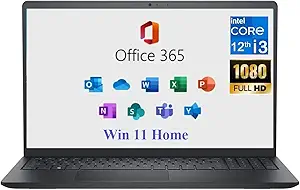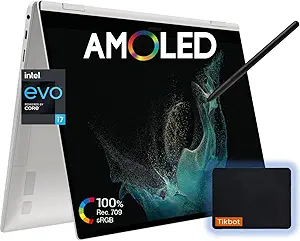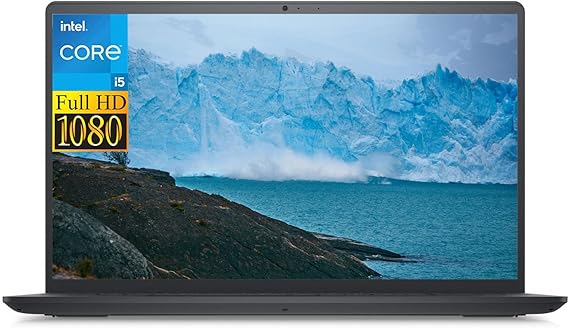In the ever-evolving landscape of laptop technology, two juggernauts reign supreme: Dell and Samsung. These industry titans have carved out their own niches, captivating users with their innovative features, sleek designs, and top-notch performance. As we delve into this clash of giants, we uncover the distinctive characteristics of Dell and Samsung laptops, exploring which one offers the ultimate blend of style, functionality, and value.
Key Features Comparison
Product Selection
When it comes to product selection, both Dell and Samsung offer a wide range of laptops to cater to different user needs. Dell, a long-standing player in the market, has an extensive line-up of laptops under its various series like Inspiron, XPS, G Series, and Alienware. Each series is designed to cater to a specific set of users, whether they are everyday users, business professionals, gamers, or creative professionals. Dell's latest offerings include models with 11th Gen Intel Core processors, NVIDIA GeForce RTX 30 series graphics, and OLED displays, among other advanced features. On the other hand, Samsung, primarily known for its smartphones and electronics, also offers a decent selection of laptops under its Notebook and Galaxy Book series. Samsung laptops are renowned for their sleek design, vibrant displays, and integration with other Samsung devices and services. The latest Samsung laptops feature 11th Gen Intel Core processors, Intel Iris Xe graphics, and QLED displays. However, compared to Dell, Samsung's laptop selection is somewhat limited, especially in the gaming and high-performance segments. While Dell offers a wider range of choices to consumers, Samsung's offerings are more streamlined and focused on general users and professionals. Both brands have their strengths and cater to different segments of the market.
Affordability
When it comes to price, Dell and Samsung laptops offer a wide range of options to cater to different consumer needs. Dell laptops, renowned for their robust build and excellent customer service, tend to be slightly more expensive than their Samsung counterparts. Dell's latest models, such as the Dell XPS 13 and Dell Alienware Area-51m, are priced at a premium due to their high-end specifications and features, including 10th generation Intel Core processors, superior graphics cards, and sleek designs. However, Dell also offers budget-friendly options like the Dell Inspiron series, which is popular among students and casual users. On the other hand, Samsung laptops, known for their sleek design and innovative features, offer a more affordable range. The Samsung Galaxy Book Flex and Galaxy Book Ion, for example, are competitively priced and come with features like QLED displays and wireless PowerShare. However, while Samsung laptops are generally cheaper, they may not offer the same level of performance as some of the high-end Dell models, especially for resource-intensive tasks like gaming or video editing. It's also worth noting that Samsung's customer service and after-sales support are not as highly rated as Dell's. Therefore, while Samsung may offer more affordable options, Dell's pricing can often be justified by its superior performance and customer support.
Reputation
Dell laptops have built a strong reputation in the market for their durability, high-performance, and excellent customer service. They are known for their wide range of products, from budget-friendly options to high-end gaming laptops, catering to all types of consumers. Dell's latest technologies, such as the Dell XPS 13, featuring 11th Gen Intel Core processors and a 4K Ultra HD+ (3840 x 2400) InfinityEdge touch display, have been widely acclaimed for their top-notch performance and sleek design. However, some users have reported issues with the Dell's software and bloatware, which can affect the overall performance of the laptop. On the other hand, Samsung laptops are recognized for their sleek design, portability, and innovative features. They have a strong presence in the ultrabook market with their Galaxy Book series, which is well-regarded for its lightweight design and high-quality display. Samsung's latest release, the Galaxy Book Pro 360, has been praised for its AMOLED display, 11th Gen Intel Core processors, and long battery life. However, Samsung laptops often come with a higher price tag compared to other brands, and their customer service is not as highly rated as Dell's. Additionally, while Samsung laptops are known for their advanced features, they may not be the best choice for heavy gaming or high-performance tasks compared to other brands like Dell.
Battery Life
Dell laptops, particularly the Dell XPS and Dell Latitude series, have been praised for their impressive battery life. The Dell XPS 13, which comes with the latest 11th generation Intel processors, boasts a battery life of up to 14 hours for web browsing, and up to 8 hours for video streaming. This is due to Dell's advanced battery technology and power-efficient processors. However, one downside is that the battery life can significantly decrease with heavy usage and over time. On the other hand, Samsung laptops, such as the Samsung Galaxy Book Flex and Samsung Galaxy Book Ion, have also shown commendable battery performance. The Galaxy Book Flex, equipped with a 10th generation Intel Core processor, claims to offer up to 20 hours of battery life. This is largely due to Samsung's QLED technology and power-efficient design. However, similar to Dell, the battery life can reduce with intensive tasks and over time. When compared to other brands, both Dell and Samsung offer competitive battery life, but the actual performance can vary based on the specific model and usage conditions.
Display
Dell laptops are renowned for their high-quality display. Many of their models, such as the Dell XPS 15, come with a 4K Ultra HD (3840 x 2160) InfinityEdge touch display, providing users with a sharp, detailed, and vibrant visual experience. The anti-reflective screen combined with a superior 500-nit brightness frees you to enjoy your entertainment outdoors. However, some users have reported that the color accuracy on Dell laptops isn't always the best, which could be a downside for graphic designers or digital artists. On the other hand, Samsung laptops like the Samsung Galaxy Book Flex feature a QLED (Quantum dot LED) display. This technology offers a more vivid and brighter display compared to traditional LED screens. The Quantum Dot technology can produce more than a billion shades of color, providing a more dynamic and vibrant display. It also has a built-in sensor that optimizes the color tone depending on your surroundings for optimal viewing. However, while Samsung's QLED technology does offer a high-quality display, it can sometimes lead to oversaturated colors, which might not be ideal for users who prefer a more neutral or accurate color palette. Compared to Dell, Samsung's display technology is more advanced, but the choice between the two would depend on the user's specific needs and preferences.
Conclusion
In the battle of Dell vs. Samsung laptops, both brands offer compelling options tailored to different preferences and priorities. Dell excels in durability, reliability, and performance, making it the ideal choice for professionals and business users who demand the utmost in productivity. Samsung, on the other hand, shines in design, innovation, and affordability, appealing to users who value style, versatility, and value for money. Ultimately, the choice between Dell and Samsung laptops depends on individual preferences, whether it's a preference for reliability and performance or style and innovation. Whichever path you choose, both Dell and Samsung continue to push the boundaries of laptop technology, driving innovation and inspiring users worldwide. So, whether you're team Dell or team Samsung, rest assured that the future of laptop computing is in capable hands, thanks to these two industry giants.



















